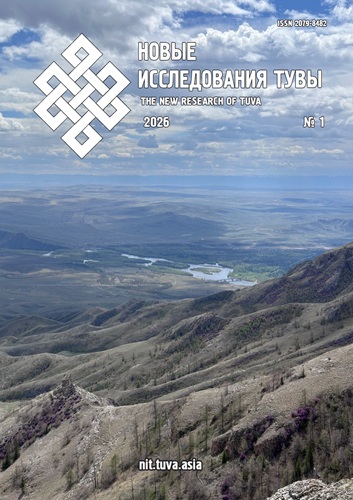
О журнале
Журнал «Новые исследования Тувы» — рецензируемый научный журнал открытого доступа, публикующий результаты комплексных, междисциплинарных исследований по проблемам тувиноведения — области гуманитарного, социального знания об истории и культуре Тувы и народов, определяющих ее уникальный социокультурный облик.
Журнал публикует статьи на русском и английском языках. Выходит 4 раза в год.
Учредитель и главный редактор - д-р филос. н. Ч. К. Ламажаа.
Издатели: Ч. К. Ламажаа (Россия, 117437, г. Москва, а/я 30); Казахский национальный университет имени аль-Фараби (Республика Казахстан, Алматы, 050040 пр. Аль-Фараби, д. 71).
ISSN 2079-8482.
Зарегистрирован в Роскомнадзоре, свидетельство о регистрации Эл №ФС77-37967 от 5 ноября 2009 г.
Индексация журнала: РИНЦ, КиберЛенинка, PKP Index, ERIH PLUS, Google Scholar, DOAJ, Scopus, ESCI Web of Science Core Collection, EuroPub.
Издание включено в каталог Ulrich's Periodicals Directory, ROAD.
Международное агентство CrossRef присваивает статьям журнала DOI (идентификатор цифрового объекта). DOI журнала doi.org/10.25178/nit
Текущий выпуск

Специальная тема «Горные исследования». Ответственные редакторы: доктор философских наук Чимиза Кудер-ооловна Ламажаа (Казахский национальный университет имени аль-Фараби, Казахстан), доктор филологических наук Зухра Ахметовна Кучукова (Кабардино-Балкарский государственный университет им. Х. М. Бербекова, Россия)



